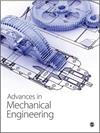FDM技术在日光和海水老化作用下的可生物降解材料
IF 2
4区 工程技术
Q3 ENGINEERING, MECHANICAL
引用次数: 0
摘要
聚合物的耐久性和降解性对产品设计的材料选择非常重要。研究了3D打印制备的两种可生物降解热塑性材料Enviro ABS和PLA的降解行为。在8周的时间里,模拟了太阳和海水的作用,以了解它们是如何影响这些材料的性能的。分析了屈服强度、最大伸长率、极限抗拉强度、显微观察以及尺寸和质量的变化。作为工业上最广泛使用的石油基塑料之一,ABS是熔融沉积成型(FDM)或熔融长丝制造(FFF)中最广泛使用的塑料之一,对这些可生物降解材料进行了研究,以确定是否存在一种环保的替代品。PLA在阳光作用下表现出失重和极限拉应力的增加,而在海水作用下由于吸湿导致极限拉应力的持续降低。相比之下,Enviro ABS在测试开始和结束时并没有表现出明显的差异,这导致了这样的结论:Enviro ABS是传统ABS的良好替代品,同时又不会忘记目前这种材料的制造、回收和堆肥所涉及的环境影响。本文章由计算机程序翻译,如有差异,请以英文原文为准。
Biodegradable materials with FDM technology under the aging effect of solar and saltwater exposure
The durability and degradation of polymers is very important for product design in terms of material choice. The degradation behavior of two biodegradable thermoplastic materials manufactured by 3D printing, Enviro ABS and PLA, was studied. The action of the sun and seawater was simulated to find out how they affect the properties of these materials over a period of 8 weeks. The yield strength, maximum elongation, ultimate tensile strength, and microscopy were analyzed, as well as dimensions and mass changes. These biodegradable materials were studied to conclude whether there is an environmentally friendly alternative to traditional ABS, being one of the most widely used petroleum-based plastics in industry and in fused deposition modeling (FDM) or fused filament fabrication (FFF). PLA showed a weight loss and increase in ultimate tensile stress on degradation by sunlight and a prolonged decrease in ultimate tensile stress on degradation by seawater due to humidity absorption. In contrast, Enviro ABS does not show a noticeable difference between the beginning and the end of the test, which leads to the conclusion that Enviro ABS is a good alternative to conventional ABS without forgetting the environmental effects that are currently involved in the manufacture, recycling and composting of this type of material.
求助全文
通过发布文献求助,成功后即可免费获取论文全文。
去求助
来源期刊

Advances in Mechanical Engineering
工程技术-机械工程
CiteScore
3.60
自引率
4.80%
发文量
353
审稿时长
6-12 weeks
期刊介绍:
Advances in Mechanical Engineering (AIME) is a JCR Ranked, peer-reviewed, open access journal which publishes a wide range of original research and review articles. The journal Editorial Board welcomes manuscripts in both fundamental and applied research areas, and encourages submissions which contribute novel and innovative insights to the field of mechanical engineering
 求助内容:
求助内容: 应助结果提醒方式:
应助结果提醒方式:


